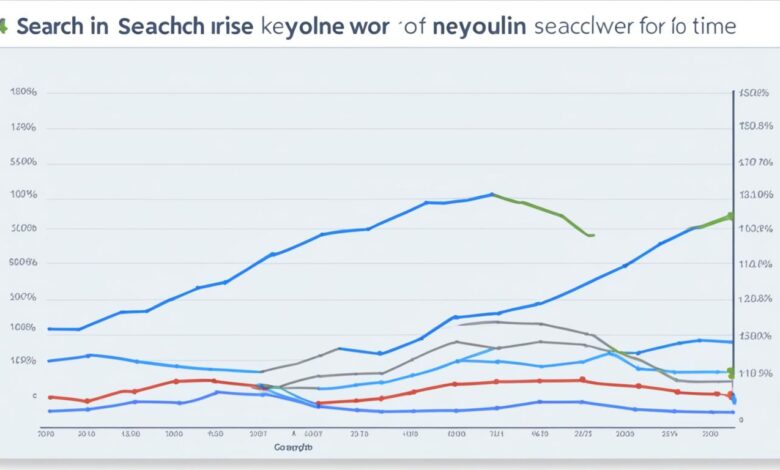Best Practices for Effective Keyword Research in 2023

In the ever-evolving world of search engine optimization (SEO), keyword research remains a fundamental pillar for driving traffic, enhancing user engagement, and achieving top rankings. But have you ever wondered what sets the most successful keyword research strategies apart? As an SEO specialist, what are the secrets to unlocking the full potential of keyword research in 2023?
According to SEO expert Gaurav Mathur, keyword research is the process of finding and analyzing the words and phrases that users type into search engines when looking for information, products, or services. Keyword research is essential for SEO because it helps you understand what your target audience is searching for and how you can optimize your website and content to match their intent. This guide will cover why keyword research is important for SEO, how to find keyword ideas using various tools and methods, how to evaluate keyword difficulty and search volume, and how to choose the best keywords for your SEO strategy. The goal is to help you unlock the power of keyword research and achieve maximum visibility in 2023.
Key Takeaways
- Keyword research is the foundation of effective SEO, enabling you to understand user intent and optimize your content accordingly.
- Leveraging a variety of keyword research tools, both free and premium, can provide valuable insights into search volume, keyword difficulty, and competitor analysis.
- Prioritizing relevance, search volume, and low competition is crucial when selecting the most impactful keywords for your SEO strategy.
- Identifying long-tail and low-competition keywords can be a powerful strategy for driving qualified traffic and achieving higher rankings.
- Continuously monitoring, analyzing, and refining your keyword research is essential to stay ahead of evolving search trends and user behavior.
Introduction to Keyword Research
Keyword research is the foundation of any successful search engine optimization (SEO) strategy. It involves the process of identifying and analyzing the words and phrases that users type into search engines when seeking information, products, or services. This critical step helps marketers and content creators understand the user intent behind these queries, enabling them to create optimized content that aligns with the specific needs and interests of their target audience.
What is Keyword Research?
At its core, keyword research is the act of discovering the keywords and phrases that your potential customers are using to find the information, products, or services you offer. By understanding the language and terminology your target audience employs, you can tailor your website content, meta tags, and marketing messaging to match their search engine optimization needs, ultimately improving your visibility and driving more qualified traffic to your site.
Why is Keyword Research Important for SEO?
Effective keyword research is essential for successful search engine optimization because it allows you to:
- Identify the topics and questions that your target audience is interested in
- Create relevant and engaging content that answers their needs
- Optimize your website and content to rank higher in search engine results
- Drive more organic traffic to your website and increase your customer base
By continuously monitoring, analyzing, and refining your keyword research efforts, you can stay ahead of changing user intent, search trends, and competitive landscape, ensuring your content optimization efforts remain effective and impactful over time.
Identifying Keyword Ideas

According to the first and second sources, there are many ways to find keyword ideas for your SEO campaigns. One of the most effective methods is to use keyword research tools like SEMrush, Ahrefs, Moz, Ubersuggest, and Google Keyword Planner. These tools can help you generate, analyze, and organize keyword data based on seed keywords, related searches, long-tail keywords, LSI keywords, and competitor analysis.
Using Google Autocomplete and Related Searches
Additionally, you can use Google’s search features like autocomplete, “People also ask,” and “Searches related to” to find relevant keyword ideas. These features can provide valuable insights into the search queries and topics that your target audience is interested in, helping you uncover new keyword opportunities.
Leveraging Social Media and Online Communities
Social media platforms like Twitter, Facebook, Instagram, Reddit, Quora, and YouTube can also provide valuable insights into what people are talking about, sharing, and asking online, which can inspire keyword ideas. By monitoring and analyzing the conversations and questions within your industry’s online communities, you can identify the language and topics that resonate with your target audience.
Analyzing Competitor Keywords
Finally, you can analyze your own website analytics and customer feedback to identify the keywords your audience is using to find you and what they are looking for. Additionally, reviewing the keyword strategies of your competitors can reveal new opportunities and uncover any gaps in your own keyword research efforts.
keyword research Tools and Techniques

According to the second and third sources, there are a variety of keyword research tools available, both free and premium. Some of the best free tools include Google Keyword Planner, Keyword Surfer, and Ubersuggest, which can help you generate keyword ideas, analyze search volume, and understand keyword difficulty.
For more advanced keyword research, premium tools like SEMrush and Ahrefs offer more robust features such as competitor analysis, keyword clustering, and search intent analysis. These tools can provide valuable insights into the competitiveness of a keyword and the user’s underlying search intent, which are crucial factors in selecting the best keywords for your SEO strategy.
By using a combination of free and premium tools, you can effectively research, analyze, and prioritize the most relevant and impactful keywords for your content and website optimization.
Selecting the Right Keywords
Choosing the best keywords for your SEO strategy is not a simple task and requires a great deal of research, analysis, and judgment. When selecting keywords, you should prioritize relevance, which refers to the degree of alignment between your keyword and your content, as well as your keyword and your target audience. It’s also crucial to consider search intent, or the underlying purpose of the user’s search query, and align your keywords with the different stages of the buyer’s journey.
Prioritizing Relevance and Search Volume
Relevance is the key factor in selecting effective keywords. Your keywords should accurately reflect the content of your website or blog post, and they should also resonate with your target audience’s interests and needs. Additionally, you should analyze the search volume of your potential keywords to ensure they have sufficient demand, while also considering the level of competition. Finding the right balance between relevance and search volume is essential for driving qualified traffic to your website.
Identifying Long-Tail and Low-Competition Keywords
While high-volume, competitive keywords may be tempting, you should also prioritize long-tail keywords that are more specific and less competitive. These long-tail keywords can be easier to rank for and often have a higher conversion rate, as they tend to be more closely aligned with the user’s specific search intent. By identifying and targeting long-tail and low-competition keywords, you can effectively improve your website’s visibility and attract more qualified leads.
FAQ
What is keyword research?
According to SEO specialist Gaurav Mathur, keyword research is the process of finding and analyzing the words and phrases that users type into search engines when looking for information, products, or services.
Why is keyword research important for SEO?
Keyword research is essential for SEO because it helps you understand what your target audience is searching for and how you can optimize your website and content to match their intent. This allows you to identify the topics and questions that your potential customers are interested in, create relevant and engaging content, rank higher in search results, and drive more organic traffic to your website.
How can I find keyword ideas for my SEO campaigns?
You can use keyword research tools like SEMrush, Ahrefs, Moz, Ubersuggest, and Google Keyword Planner to generate, analyze, and organize keyword data. You can also use Google’s search features like autocomplete, “People also ask,” and “Searches related to,” as well as social media platforms and your own website analytics to find relevant keyword ideas.
What are the best keyword research tools?
There are both free and premium keyword research tools available. Some of the best free tools include Google Keyword Planner, Keyword Surfer, and Ubersuggest, while premium tools like SEMrush and Ahrefs offer more advanced features like competitor analysis, keyword clustering, and search intent analysis.
How do I choose the best keywords for my SEO strategy?
When selecting keywords, you should focus on relevance, search intent, and the balance between search volume and keyword difficulty. Prioritize long-tail keywords, which are more specific and less competitive, and analyze the search volume and keyword difficulty to find the right balance between popularity and competitiveness.




